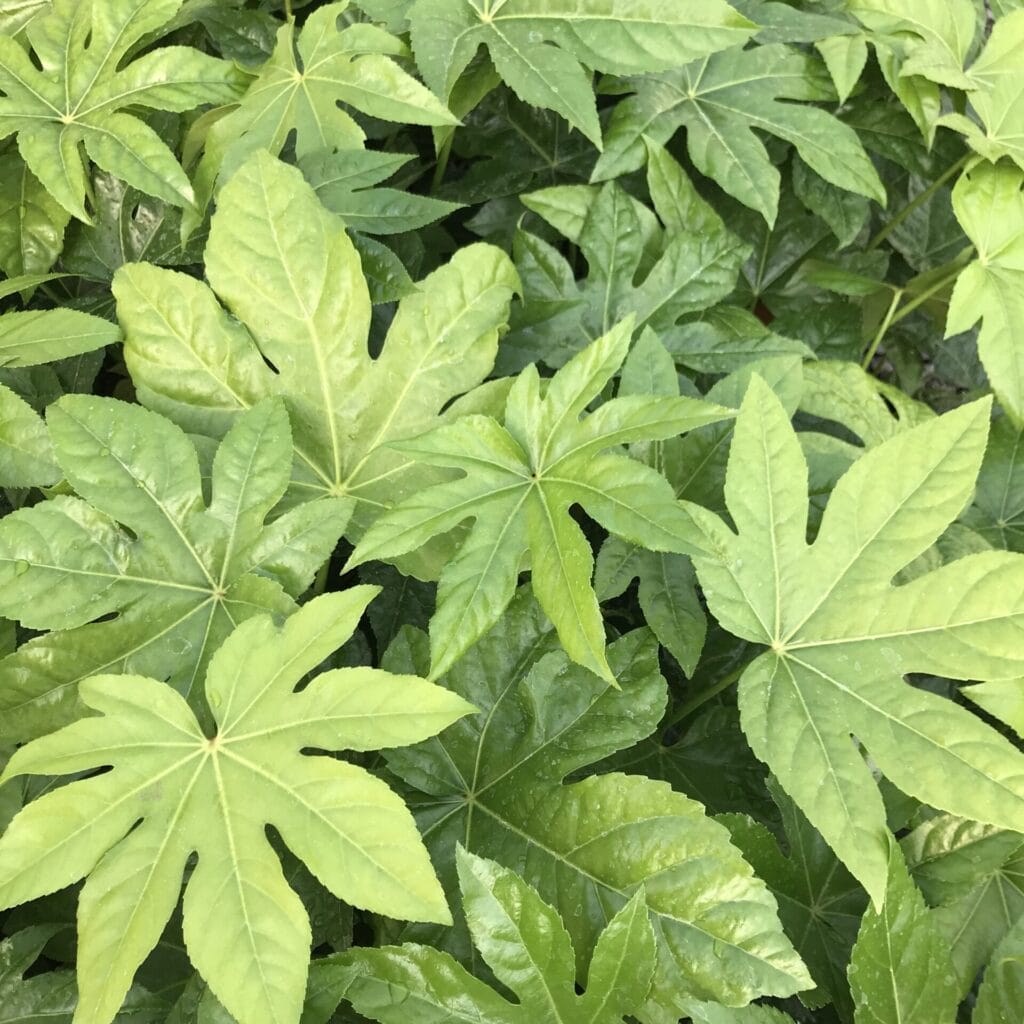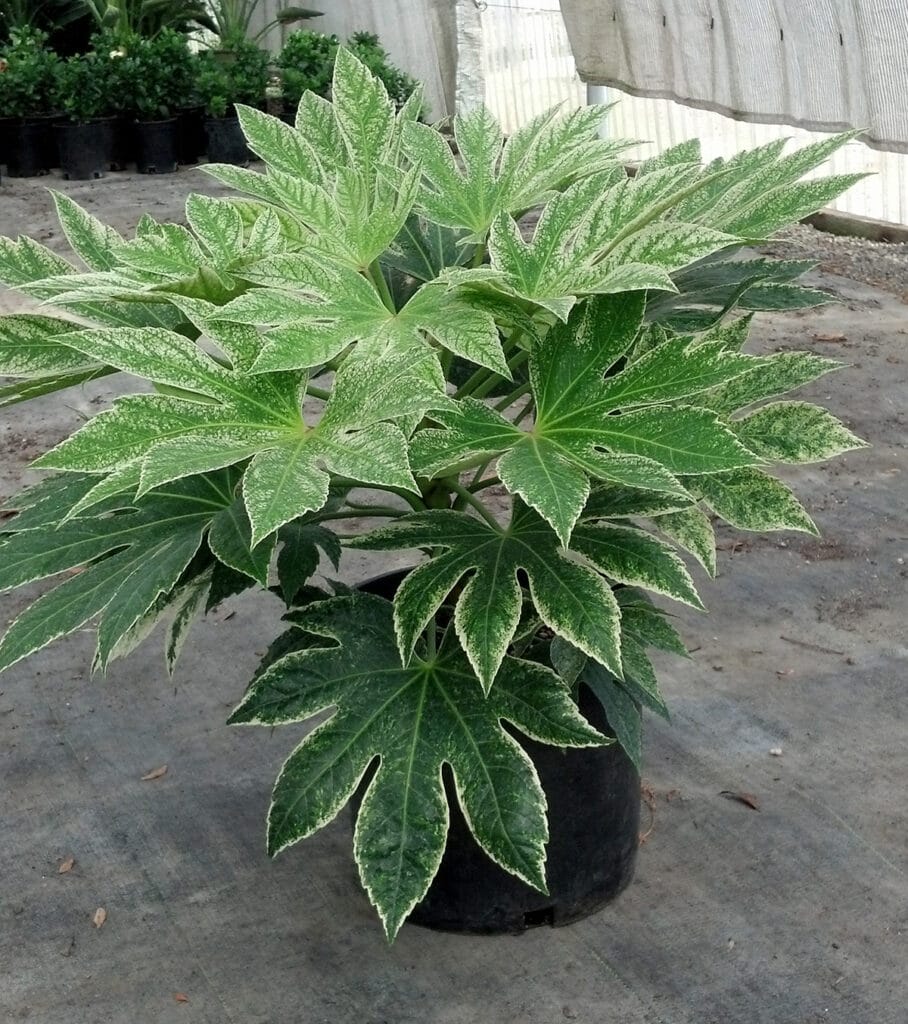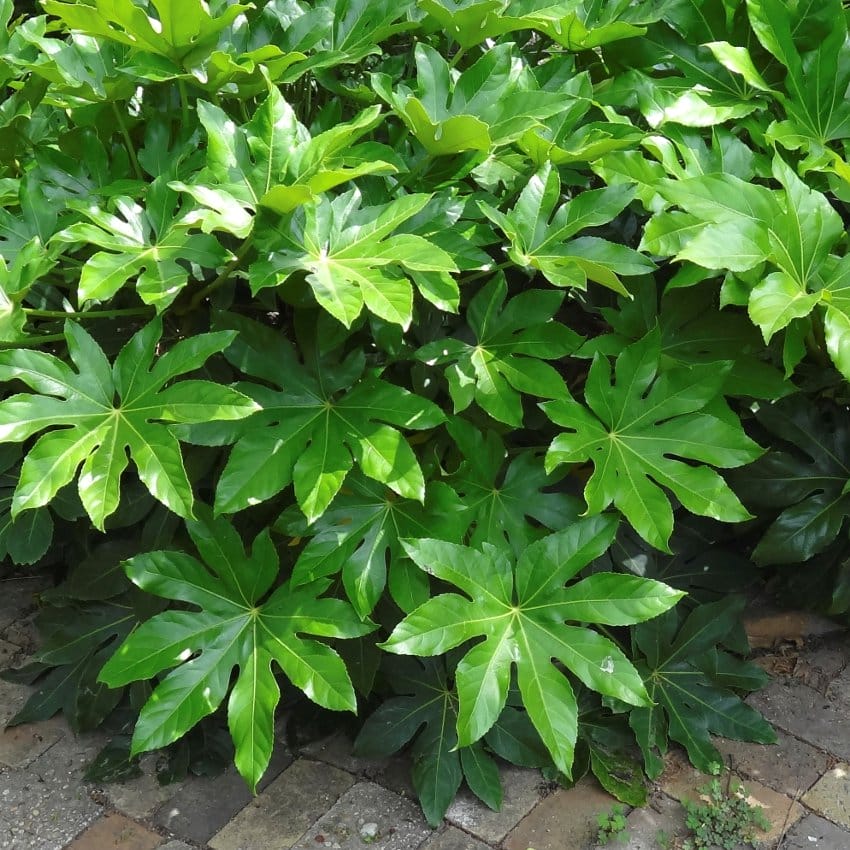Landscaping Ideas
Japanese Aralia
By Innovation Grounds
The Japanese Aralia, or Fatsia japonica, is an attractive, hardy evergreen shrub native to Japan, Taiwan, and Korea. It’s known for its glossy, large, palmate leaves and its ability to thrive in a variety of conditions.
General Information
- Scientific Name: Fatsia japonica
- Common Names: Japanese Aralia, Fatsia, Paperplant, Japanese Palm Tree
- Family: Araliaceae
- Native Range: Japan, Korea, Taiwan
- Height: Typically grows 6–10 feet (1.8–3 meters) tall; can reach up to 15 feet (4.5 meters) in ideal conditions.
- Spread: Can spread 5–8 feet (1.5–2.5 meters) wide.

Growing Conditions
- Light: Prefers bright, indirect light but can tolerate moderate shade. Too much direct sun can scorch the leaves, while too little light may cause the plant to become leggy.
- Temperature: Hardy in USDA zones 8–10. Prefers temperatures between 50°F (10°C) and 75°F (24°C). Avoid frost or cold drafts in the winter as it can damage the plant.
- Soil: Well-draining, slightly acidic to neutral soil is ideal. It can tolerate a variety of soil types, as long as they are not too dry or compacted.
- Watering: Likes consistently moist soil but not soggy. Water when the top inch of soil feels dry. Be sure to avoid waterlogging, which can lead to root rot.
- Humidity: Prefers moderate to high humidity, making it a good choice for bathrooms or kitchens.

Care Tips
- Pruning: Can be pruned to maintain shape or control its size. Remove dead or damaged leaves regularly. In spring, trim any leggy growth to encourage fuller growth.
- Fertilization: During the growing season (spring and summer), fertilize monthly with a balanced liquid fertilizer. Reduce feeding in the fall and winter months when the plant is not actively growing.
- Repotting: Typically needs to be repotted every 2–3 years. Choose a container that is just slightly larger than the root ball to avoid overwatering issues.
- Pests/Diseases: Watch out for common houseplant pests like spider mites, scale, and aphids. Also, be mindful of fungal infections if the plant is overwatered or in poor drainage conditions.

Fun Facts
- The Japanese Aralia is a slow grower, which can make it an excellent low-maintenance option for those not wanting a plant that requires frequent care.
- It’s often used in Feng Shui practices for its reputed ability to attract positive energy into the home.


